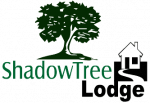Michigan AFC Home Requirements: Licensing and Safety Standards
Did you know that Michigan AFC homes, like ShadowTree Lodge, must meet specific licensing and safety standards to maintain operation? From rigorous inspections of the physical environment to ongoing training for staff, these regulations are in place to safeguard the well-being of residents.
But what exactly do these standards entail, and how do they impact the quality of care provided in these homes? Let’s explore the detailed requirements and expectations for Michigan AFC homes, including ShadowTree Lodge, to guarantee the safety and welfare of those under their care.
Licensing Process Overview
When considering Michigan AFC home requirements, it’s essential to understand the detailed licensing process. The journey begins with submitting an application to the Michigan Department of Licensing and Regulatory Affairs (LARA), which assesses the applicant’s qualifications and the facility’s suitability.
- Background Checks: Comprehensive background checks are mandatory for all staff to ensure the safety of residents.
- Training Requirements: Caregivers must complete specific training to acquire the necessary skills to meet residents’ needs.
- Site Inspections: After the application is approved, state officials conduct site inspections to ensure the facility meets safety and health standards.
Homes must also address any deficiencies identified during inspections before being licensed. Following these steps ensures compliance with Michigan assisted living regulations and helps provide a safe home for residents.

Facility Requirements and Inspections
Meeting Michigan AFC home requirements for adults involves ensuring the physical environment adheres to strict standards. These include:
- Building Codes: All AFC homes must meet structural integrity and fire safety regulations.
- Accessibility Standards: The home must be accessible for individuals with mobility challenges, including ramps and accessible bathrooms.
- Living Spaces: Common areas and private rooms must offer comfort, cleanliness, and adequate space for residents.
Inspectors assess these elements during regular evaluations, ensuring compliance with group home rules and regulations in Michigan. Maintaining a high standard during inspections is crucial for continuous operation.
Staffing and Training Standards
Staffing and Training Standards are essential in maintaining the quality of care provided at Michigan AFC homes. To sustain high standards, here are key considerations:
- Staffing Ratios: Adequate staffing ratios are essential to effectively meeting residents’ needs. Guarantee that there are enough caregivers present to provide personalized attention and assistance as required. Assisted living facilities, as outlined in the Understanding the Distinctions Between Assisted Living and Nursing Homes knowledge, focus on promoting independence while offering necessary assistance.
- Employee Qualifications: Staff must meet specific requirements to work in AFC homes. This includes having the necessary certifications, training, and experience to handle the diverse needs of residents professionally.
- Continuous Training: Ongoing training programs should be in place to keep staff updated on the latest caregiving techniques, safety protocols, and regulations. This ensures that employees are equipped to deliver the best care at all times.
- Supervision and Support: Proper supervision and support mechanisms must be in place to guide staff, address any challenges they face, and ensure a conducive working environment for everyone involved in resident care.
Resident Rights and Protections
Ensuring resident rights and protections is fundamental to maintaining a safe and respectful environment in Michigan AFC homes. Residents have the right to privacy and to be treated with dignity and respect at all times. It is pivotal for AFC home staff to uphold these rights and provide a supportive atmosphere for residents to thrive. In the table below, you will find key resident rights and protections, along with information on complaint procedures:
| Resident Rights and Protections | Description |
| Privacy Rights | Residents have the right to privacy in personal matters, such as when receiving medical care or engaging in personal activities. |
| Dignity and Respect | Residents must be treated with dignity and respect, regardless of their physical or cognitive abilities. |
| Complaint Procedures | Clear procedures must be in place for residents to voice concerns or complaints regarding their care or living conditions. Staff should address these promptly and professionally. |
Emergency Preparedness and Safety Measures
During times of crisis, the safety and well-being of residents in Michigan AFC homes are of utmost significance. To safeguard the highest level of emergency preparedness and safety measures, the following key points are essential:
- Evacuation Procedures: Michigan AFC homes must have detailed evacuation plans for emergencies such as fires, severe weather, or power outages. These procedures should be regularly practiced and updated as necessary. Regular safety drills are vital to familiarize residents and staff with emergency protocols (Quality of Life in Assisted Living).
- Safety Drills: Regular safety drills should be conducted to familiarize residents and staff with emergency protocols. This helps guarantee a quick and efficient response in case of an actual emergency.
- Emergency Supplies: AFC homes must have an adequate supply of emergency provisions such as food, water, medications, and first aid kits to sustain residents during crises.
- Communication Protocols: Clear communication channels must be established to relay emergency information to residents, staff, and families promptly and effectively, ensuring everyone is well-informed and prepared.
To wrap up, meeting Michigan AFC home requirements is essential for ensuring the safety and well-being of residents at ShadowTree Lodge. Adherence to these standards is vital, from the rigorous licensing process to thorough facility inspections, staffing standards, resident rights protections, and emergency preparedness measures. So, don’t be caught off guard—make sure ShadowTree Lodge is up to standard to provide an excellent living environment for your residents. Contact ShadowTree Lodge at 810-660-7525.
Frequently asked questions
Who pays for AFC homes in Michigan?
The cost of AFC homes in Michigan is typically covered by a combination of private payments and government assistance programs. Medicaid may cover part of the expenses for eligible individuals under the MI Choice Waiver Program. Families often supplement costs, and some nonprofit organizations provide additional support for low-income residents.
What are the different types of AFC homes in Michigan?
Michigan offers various types of Adult Foster Care (AFC) homes, including small family homes (1-6 residents) and large group homes (7-20 residents). Depending on their license type, these facilities may cater to specific populations, such as elderly adults, individuals with disabilities, or those with mental health needs.
How do you qualify for assisted living in Michigan?
To qualify for assisted living in Michigan, individuals typically need to demonstrate a need for daily assistance with personal care or medical supervision. Financial eligibility for government programs, such as Medicaid, may require proof of limited income and assets. Assessments by healthcare professionals may also determine the level of care needed.
What is a home for the aged in Michigan?
A “home for the aged” in Michigan is a licensed facility that provides care and supervision for individuals aged 60 and older. These homes are similar to AFC homes but specifically cater to the elderly, offering services like meal preparation, medication management, and personal care assistance in a group setting.
How much does the government pay for group homes in Michigan?
Government payments for group homes in Michigan depend on the resident’s eligibility for Medicaid or other assistance programs. The MI Choice Waiver Program provides financial support for qualifying individuals, covering part or all of the costs. However, the amount varies based on the resident’s care needs and income level.




